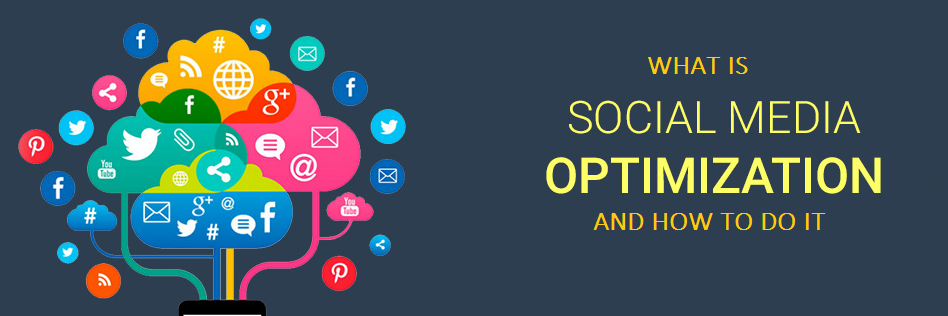

Social media optimization (SMO) is the use of a number of outlets and communities to generate publicity to increase the awareness of a product, service brand or event. Types of social media involved include RSS feeds, social news and bookmarking sites, as well as social networking sites, such as Facebook, Twitter, video sharing websites and blogging sites. SMO is similar to search engine optimization, in that the goal is to generate web traffic and to a site and increase awareness for a website. In general, social media optimization refers to optimizing a website and its content to encourage more users to use and share links to the website across social media and networking sites. SMO also refers to software tools that automate this process, or to website experts who undertake this process for clients.
The goal of SMO is to strategically create interesting online content, ranging from well-written text to eye-catching digital photos or video clips that encourages and entices people to engage with a website and then share this content, via its weblink, with their social media contacts and friends. Common examples of social media engagement are liking and commenting on posts, retweeting, embedding, sharing, and promoting content
. Social media optimization is also an effective way of implementing online reputation management (ORM), meaning that if someone posts bad reviews of a business, a SMO strategy can ensure that the negative feedback is not the first link to come up in a list of search engine results.
Online marketing is all about awareness and visibility. Most of the time, people find your small business online in one of three ways:
Search engine optimization (SEO) is a set of strategies with the broad goal of bringing more people to your website the first way, by improving your search engine rankings. Social media optimization (SMO) can be one part of SEO—but it also contributes to all three ways people find you online.
Obviously, SMO has to do with social networks and their growing importance to business. This aspect of optimization deals with enhancing your company’s presence and online reputation through interactive communities—not just Facebook and Twitter, but also blogs, forums, and anywhere your business is mentioned or linked to socially.
Working with SMO can help you strengthen your brand and boost visibility, as well as generate leads and increase sales. Optimizing your social media builds both familiarity with and trust for your business, because consumers will see you not only mentioned, but recommended by others.
If you’re looking to improve your SMO, it’s important to keep in mind that having huge numbers of links to your website scattered across social networks is not optimization. Joining every Facebook industry page, Google+ Community, and LinkedIn group just to seed links to your content is actually counterproductive, to both SMO and SEO.
Social shares carry a lot more weight when they’re coming from someone else. In addition, indiscriminate link-spreading without engagement and participation will get you unfollowed in your social networks—which in turn drives down your authority.
In order to improve SMO for your small business, you should focus on engaging with relevant social audiences, contributing to conversations, and posting your own shares of authoritative content for your industry.
In the last month or so, Google quietly launched a major overhaul of their search algorithm. Dubbed Hummingbird because of its speed and precision, the new algorithm changes the way Google interprets search terms—and changes the weight of some factors that drive search rankings.
Social shares are more important in calculating rankings now, and they’re apt to contribute even more in the near future. The Hummingbird algorithm values quality content that is relevant, authoritative, and shareable. So the more your content has been shared across social media, the higher its perceived quality—and the better you’ll rank on Google.